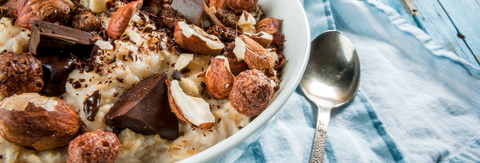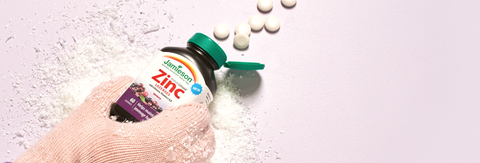Now that the winter months are upon us, have you noticed that you’re feeling a little bit down? Maybe you’re experiencing a lack of energy, less enjoyment, or even an increase in sugar cravings? If you’ve found yourself answering ‘yes’ to any of these, or all of the above, you may be suffering from a case of the Winter Blues.
Winter Blues Explained
The Winter Blues is a type of seasonal melancholy that many experience during the fall and winter months. The Winter Blues is a milder form of seasonal sadness and clears up as the winter ends. Seasonal Affective Disorder on the other hand, is a more serious form of seasonal depression, usually clinically diagnosed. The Winter Blues are thought to be caused by a combination of the shortened days, colder weather and stresses of the holiday season; and the decrease of sunlight can lead to an imbalance in mood-boosting brain chemicals, serotonin (which controls our appetite and mood) and dopamine (which regulates our motivation, mood and attention).
Luckily, you can lessen the effects of the cold dreary weather and you can eat to beat the Winter Blues.
Shake off the Winter Blues
Complex Carbohydrates
Studies* show that a lack of serotonin can actually increase cravings for simple carbohydrates (e.g.) white bread, white rice and sweets). Consuming simple carbohydrates can rapidly increase blood sugar levels, giving you a temporary sense of happiness, but this is often followed by a “crash” causing fatigue and irritability. Complex carbohydrates, such as legumes, vegetables, brown rice and quinoa help to stabilize these cravings and don’t rapidly raise blood sugar levels like the simple carbohydrates do, yet still keep your hunger and cravings satiated.
*Wurtman RJ, et al. (1995). Obes Res, 3 Suppl 4:477S-480S
Protein
Protein is highly recommended with each meal (especially lean protein) as it too helps to stabilize blood sugar and helps to offset cravings for sugary, simple carbohydrates. Protein also contains tyrosine, an amino acid that helps to boost dopamine (remember, it’s what regulates our mood and motivation). Great protein sources include chicken, turkey, salmon, egg yolks and legumes.
Omega-3 Fatty Acids
Studies* show that people with low levels of omega-3s are more likely to experience mood disorders. Omega-3s are essential to brain health and help to maintain good levels of mood-boosting chemicals. Food sources of omega-3 include flax seeds, salmon, nuts and sardines. If you find it difficult to include omega-3s in your diet, try supplementing with a Jamieson Omega-3 supplement.
*Gordon Parker, et al. (2006). Am J Psychiatry, 163(6):969-78.
Vitamin D
One of the theories behind the Winter Blues is that they are caused by a lack of sunlight. Studies* show that those who suffer from Seasonal Affective Disorder have low levels of vitamin D, therefore suggesting vitamin D plays a large role in mood regulation. Food sources of vitamin D include milk, egg yolks, and canned fish with their bones. To read more about the importance of vitamin D to help ward off the effects of Seasonal Affective Disorder, click here.
Tryptophan
Ever wonder why we feel so sleepy after eating turkey? Turkey contains what’s known as a brain chemical called tryptophan—which helps to boost serotonin levels in the body, leaving us feeling relaxed with reduced anxiety. And like turkey, bananas, seafood and legumes also contain tryptophan and are great sources of nutrients to help fuel your brain when you feel like you need it the most.
Dark Chocolate
Yes, chocolate! Dark chocolate is not only great tasting and full of antioxidants, but it has been shown to increase endorphins and reduce stress levels. So next time you feel like a little something to pick you up, nibble on a small piece of dark chocolate. Plus, a little chocolate never hurt anyone.




